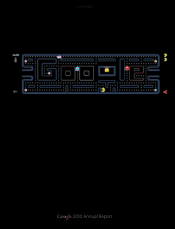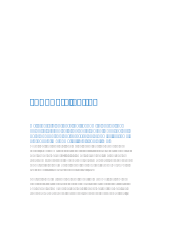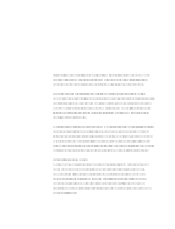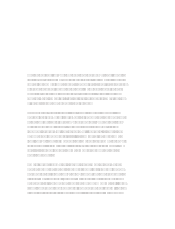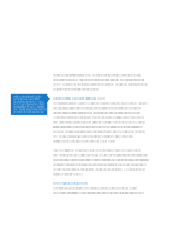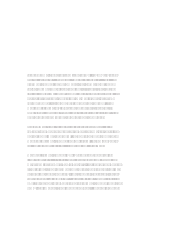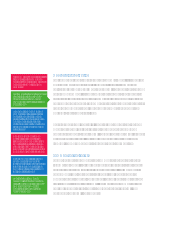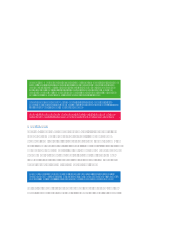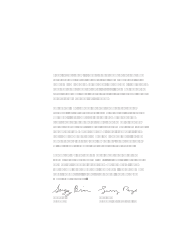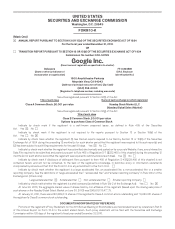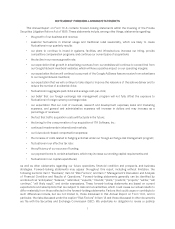Google 2010 Annual Report Download - page 5
Download and view the complete annual report
Please find page 5 of the 2010 Google annual report below. You can navigate through the pages in the report by either clicking on the pages listed below, or by using the keyword search tool below to find specific information within the annual report.Over the past year, the whole web experience has become richer, thanks to
faster processors and improved software in both client computers and data
centers. For example, Google Instant (launched late last year) starts searching
with every keystroke, thereby saving users time on every search. To date,
Google Instant has now saved our users over 100 billion keystrokes and
counting. Going forward, this is just the tip of the iceberg in terms of the kind
of interactivity one should expect to see in search.
Because we serve users in nearly every country and 146 languages, the
best available information is not always in a language that they understand.
To that end, our translation systems have been very important ever since
we introduced them ve years ago. Google Translate now works in 58
languages including Hindi, Persian and Swahili, and can o er translations
between 3,306 language pairs. Its still far from perfect, but we've come a
long, long way, thanks to improved algorithms and scaled computing power.
For geographic information, we literally cover the globe with imagery from
satellites, airplanes, and cars, and we've made street maps available of
nearly 100 countries.
Some of the best information in the world across many cultures was not
born on the web, but resides in the worlds books. This is why we launched
our books project in 2004 and we've now scanned (and enable searchers to
discover) more than 15 million books, which we estimate to be more than
10 percent of all the books published since Gutenbergand we're still going
strong. These books span hundreds of languages and over three million are
already available online as Google eBooks. In the past year, we expanded

